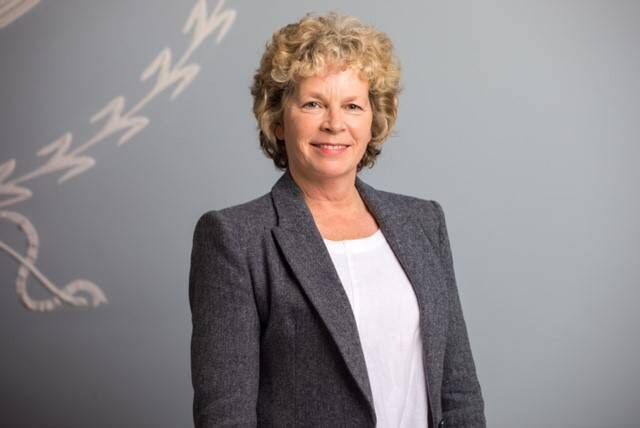What can we do better to halt the surge in flu cases and hospital overcrowding?

The covid-19 pandemic taught us that masks are among the simplest and most effective way to prevent the spread of respiratory viruses. File photo
In the first week of the year, the number of flu cases spiked by almost two thirds. There were 3,802 cases in the week to January 4 with 956 hospital admissions and seven deaths, according to data from the Health Protection Surveillance Centre (HPSC).
During the same period there were 60 outbreaks in nursing homes.
Flu season tends to peak in early January, aggravated by high levels of intergenerational mingling over the festive period. This year’s surge, the highest numbers in seven years, has been aggravated by the combination of a particularly infectious AH1 variant which has not been around since the 2018/2019 flu season aligned with a low uptake of the flu vaccine.
With an unprecedented spike in flu cases this year and overwhelmed hospital services, the key question for future years is: can we do better?
Flu vaccination rates in Ireland remain stubbornly low across all age groups as well as among healthcare workers. The number of adults over 65 years getting the flu vaccine decreased from 75% to 72.5% and number of children decreased from 19.1% to 15.9%.
A key route of transmission to vulnerable elderly patients in long stay residential accommodation is unvaccinated healthcare workers. Vaccination of all healthcare workers in long-term care facilities in the 2022/2023 winter season was 42.8%, a significant fall from the previous winter where almost half (48.9%) of workers were vaccinated.
How can these low vaccination uptake figures be improved?
One of the goals of vaccine scientists is to develop a universal influenza vaccine that provides broad spectrum protection against viruses that are continually mutating. This means that one influenza vaccine would provide protection against flu instead of the need for an annual booster vaccination every year.
Lifetime or at least multi-year effectiveness would be a huge step forward in reducing flu cases every year.
A universal influenza vaccine is a flu vaccine that is effective against all human-adapted strains of influenza A and influenza B, regardless of virus subtype or what is called antigenic shift or antigenic drift from one year to the next. This would mean it would not require modification from year to year to keep up with changes in the influenza virus.
The universal flu vaccine targets specific antigens on the flu virus that don’t change frequently and are found on all flu viruses. The current flu vaccines target antigens of the influenza virus that change often, so the immune system is not adapted to the new influenza virus mutations.
No universal vaccine has been fully developed to date. However, several vaccine candidates are in various stages of development and clinical trials may get approved in 2025.
Such a universal vaccine would be a gamechanger for ensuring high levels of immunity to flu that removed the need for a booster vaccine every year.
Until a universal flu vaccine is approved other options to improve annual flu vaccination must be considered. The World Health Organisation (WHO) and other international bodies strongly recommend flu vaccination for healthcare workers, yet vaccination uptake remains low, falling to less than half (42.8%) of healthcare workers in long-term care facilities in the 2022/2023 season.
In 2018, in response to the low uptake of flu vaccination among healthcare workers, the Royal College of Physicians in Ireland called for the introduction of a mandatory seasonal flu vaccination for healthcare workers in high-risk clinical settings.
Mandatory vaccination is the most effective intervention for improving vaccine uptake. Such policies are increasingly common in the US but there are barriers to adoption. These include beliefs that the decision to be vaccinated is personal, fears of side-effects and concerns that flu vaccines are ineffective.
Targeted public health campaigns to alleviate these concerns, aligned with vaccine champions to promote the vaccine can improve uptake rates.

A combined research study to explore interventions to increase seasonal flu vaccination coverage published in in 2016 found that mandatory vaccination was the most effective intervention followed by ‘soft’ mandates such as declination statements, indicating that they could be an important element in a vaccination programme.
Other interventions such as increased access, increased awareness and incentives were found to be less effective.
The HPSC reported in 2019 that "health care workers frequently provide care for the elderly or immunosuppressed who tend not to be able to mount as good an immune response to the vaccines as younger, healthier individuals".
"Healthcare workers have been potentially implicated as the source of influenza transmission in healthcare settings. Employees continue to work while sick with influenza. Unvaccinated workers who are not sick can still spread the virus (viral shedding can begin 1-2 days before until 5-7 days after symptom onset)."
The HPSC states that potential benefits of influenza vaccination for healthcare workers include reduced risk of outbreaks in healthcare facilities, decreased staff illness and costs resulting from loss of productivity and the protection of younger and older members of their own family and friends.
The covid-19 pandemic taught us that masks are among the simplest and most effective way to prevent the spread of respiratory viruses.
A theoretical study published in in December 2024 from the University of Surrey found that if everyone had worn masks correctly, the transmission of covid-19 could have been reduced as much as nine-fold.
Although this is a mathematical model, it adds to the growing evidence that supports the benefits of masks — a conclusion that is supported by several combined research studies and statistical studies.
Increased requirement for masking of both healthcare workers and visitors to healthcare and residential care settings during the months of peak influenza transmission has the potential to reduce the spike in cases that traditionally occur in the beginning of the new year.
A paper in the (2020) examined the impact of visitor restrictions on healthcare-associated respiratory viral infections during the covid-19 pandemic.
The study which was carried out in a tertiary hospital in Singapore, found that as such measures were typically part of a bundle of other infection prevention measures, the actual contribution of visitor restrictions in minimising respiratory virus is unclear.
"Furthermore, evidence is emerging that restricting access to family caregivers and visitors poses risks of social isolation, psychological distress and delayed recovery which has to be weighed against the potential benefits associated with preventing healthcare-associated respiratory virus infections."

The authors concluded that visitor management needs to be considered within the context of other infection prevention efforts and "needs to be calibrated carefully taking into consideration patients’ psychological wellbeing and prevention of infection transmission".
This year’s surge in flu cases has been aggravated by a particularly infectious flu variant. There are hopeful signs that a universal vaccine may emerge in the near future that has the potential to reduce the need for an annual flu vaccination booster which would be a gamechanger in the annual surge in flu cases.
In the interim, heightened measures around vaccine uptake, masking policy and visitor restrictions introduced at the outset of the annual flu season have the capacity to reduce transmission as well as curbing acute pressures on hospital facilities and healthcare staff during peak flu season.
- Dr Catherine Conlon is a public health doctor in Cork — views are her own





